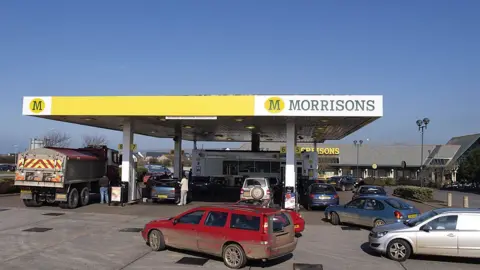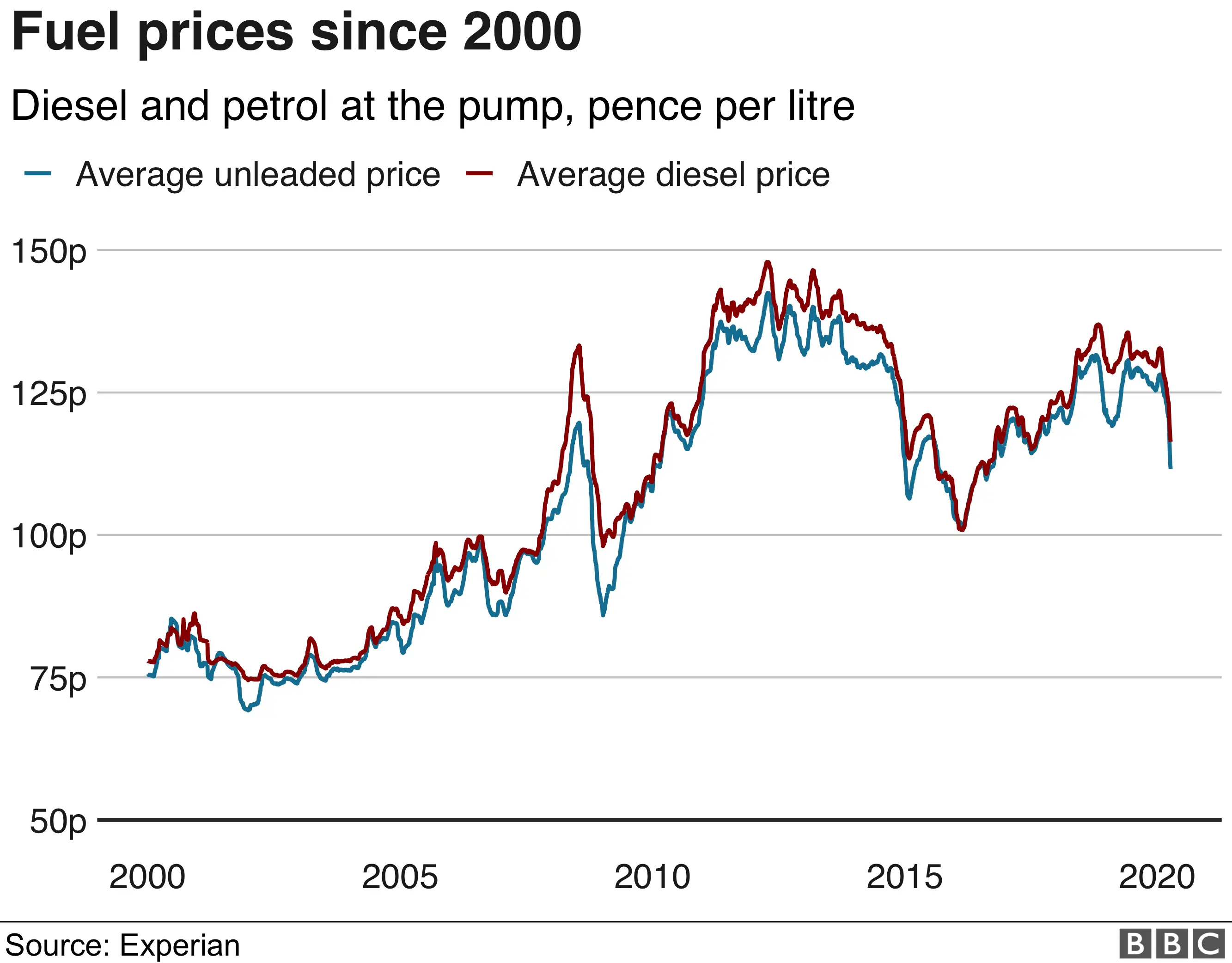Morrisons cuts petrol price to below £1 a litre
 Getty Images
Getty ImagesMorrisons has become the first major retailer to cut the price of petrol to below the £1 per litre threshold at all of its forecourts across the UK.
The move comes after oil prices fell to an 18-year low last month, with some questioning why it took retailers so long to pass on the saving.
The AA said it hoped more retailers would follow Morrisons' move.
The RAC said the lower price was "much more reflective of what the retailer is itself paying to buy the fuel in".
Morrisons said for a typical 50-litre fill up, customers will save £4.50 compared to the current national average price of petrol.
In April, some filling stations around the country had been reportedly offering petrol at less than £1, but this is thought to be the first time a national chain has sold petrol throughout the UK below the threshold since February 2016.
Why are prices falling?
In January, the price of a barrel of Brent Crude had touched $70.
By mid-March a price war between oil producers Saudi Arabia and Russia led to increased production and pushed prices to fall to close to $30 a barrel.
The oversupply of oil coincided with a steep drop in demand thanks to the global coronavirus pandemic which shut factories, grounded airline fleets and meant cars stayed in garages rather than out on the road.
As these issues combined the price of Brent Crude - the benchmark used by Europe - fell to just above $20 a barrel - its lowest level since 2002.

Trickle down
The AA said that reductions in the wholesale price of petrol many weeks ago should have brought the UK's average pump price down to £1 a litre already.
During the lockdown, retailers told drivers that they needed to keep prices high to compensate for lower fuel volumes.
However, on Sunday night Prime Minister Boris Johnson began encouraging more people to leave their homes, but avoid public transport, which is likely to see more cars on the road.
AA spokesperson Luke Bosdet said: "Drivers can only hope that Morrisons price move this morning will now break the logjam on pump prices. At least, essential workers will no longer feel penalised for having to drive to protect people and keep the country running during the lockdown."
Another factor propping up the price of fuel is that the biggest proportion of the money you hand over for a litre of petrol goes to the government in the form of tax.
Fuel duty is charged at 57.95p per litre.
On top of that, consumers also have to pay VAT at 20%.
